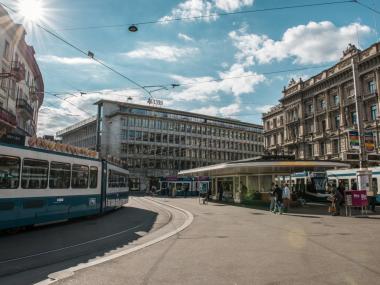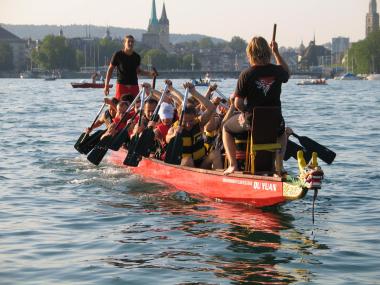Go Sustainable – a Study Trip to Zurich and Lucerne

Goals and Measures
How can social, ecological, and economic sustainability be integrated throughout the entire customer journey of the event?

Ecological Dimension
Goal: Reduce the environmental impact of the event. (5 Rs: Rethink / Refuse, Reduce, Reuse, Repair, Recycle)
Example Measures
- Public Transport only - for arrival and departure as well as on site
- Measures to avoid waste (e.g. no single use plastic bottles, no print products, herbs instead of flower bouquets, reuse of lanyards)
- Selection of local partners with certified efforts for environmental sustainability

Social Dimension
Goal: Creating an inclusive, socially responsible event that fosters the exchange among the participants and between guests and locals
Example Measures
- Guided running or walking tours with locals
- Collaboration with partner companies that promote social inclusion
- Support of social, integrative organizations

Economic Dimension
Goal: Achieving added value for the local economy without depleting resources. Involve as many local companies as possible.
Example Measures
- Employing local catering companies with exclusively regional cuisine
- Choosing guild house as a venue: indirect support of local manufacturers
- Connecting local players (hotels, venues, etc.) with potential clients resulting in concrete business inquiries


Our Learnings
Challenges and Opportunities
Managing Expectations
Clear messages and communication about the vision of the event are important for the understanding and acceptance of choices concerning programming, logistics, catering, etc.
Success Through Strong Partnerships
Involving all partner companies from the outset was essential as it strengthened the identification with the goals of the project. Particularly noteworthy was the openness and interest from social institutions and projects, which played a significant role in the success of the event.
Measuring Food Waste
Measuring food waste proved to be difficult, as waste can already be generated when products are purchased. The dependency on local suppliers and services is high, which requires careful selection.
Transport
Choosing trains over planes is a major lever for reducing an event’s emissions. Making train travel easy and comfortable for participants, as well as clearly communicating the event’s vision, is key to its acceptance. Using public transport during the event works well for groups, and the 'shared adventure' can enhance the communal experience.
Theme Drives Engagement and Networking
Selecting a sustainability-focused theme for the study trip positively influenced participant choice. By tailoring the venues, program, and lectures around this theme, the event attracted a targeted audience with shared interests. This, in turn, enhanced networking opportunities and overall satisfaction with the event.
Download Case Study
(in German)
Study trip “Go Sustainable": Successful practical example with sustainability in focus




